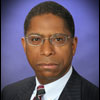01 Feb 2011 Trust for Us, by B.B. Robinson
 There is a lot of discussion of the black community’s problems: poverty, crime, high incarceration rates and high unemployment. But there isn’t much discussion of “trust.”
There is a lot of discussion of the black community’s problems: poverty, crime, high incarceration rates and high unemployment. But there isn’t much discussion of “trust.”
An absence of focus on the trust deficit in the black community obscures an unfortunate cause of many of those other topics of concern.
In its simplest form, trust is faith. Trust is faith that you will not be deceived. Trust is faith that you will not lose hard-earned possessions through deceitful acts. Trust is faith that you will not be left high and dry by a business partner.
The most awful feeling in any relationship is when trust is broken. That pain is ever so jarring when it involves an economic transaction gone bad.
The sad fact is that trust is often absent from black American relationships.
This lack of trust leads to the failure of black economic development. For example, business agreements fail when:
- not enough is invested to make a project successful;
- a partner walks away before a project is completed or
- one partner unilaterally cashes in on a project’s benefits to the exclusion of other partners.
A history of such failures makes it difficult for black Americans to trust each other enough to make small projects successful — to say nothing of larger, more important and complex projects.
If black Americans trusted each other more, it would also be easier to care about each other. If we cared more about each other, we would not sell drugs to each other or shoot each other down in cold blood. We would have stronger families and safer neighborhoods. We would be willing to enter into more long-lasting and beneficial business relationships.
Ultimately, newfound trust could lead to more jobs, higher incomes, more wealth, more respect from others and greater control over our lives.
How do we arrive at this level of trust?
Trust is often built one meeting at a time, one transaction at a time, one person at a time and one relationship at a time.
Just as the longest journey begins with a single step, building trust in the black community begins with a decision to trust grandmothers, grandfathers, mothers, fathers, sisters, brothers, aunts, uncles, cousins, friends and neighbors. It also begins with a commitment to being trustworthy.
We are ordained to rise as a people. That means we must develop trust. The question is: “Will we build that trust on our own, or will it be forced upon us by others’ actions?” Escaping slaves learned to trust and to love each other because they had no choice. Let’s hope that conditions in the here and now do not deteriorate so severely that we are forced to relearn trust and love through similar hardship.
There’s a generous reward in developing trust. Through trusting one another, our individual lives and the entire black community will improve.
During the 1995 Million Man March, Louis Farrakhan urged black men to always stop and help other black men and women in need. How many times have you seen a black man or woman stranded on a highway and have failed to stop and help because you lacked trust? Suppose that you were stranded? Are you trustworthy?
For 2011, make a resolution to begin trusting more and being more trustworthy. One positive experience after another will make the process easier. Even if there are negative experiences along the way, these will hopefully become more and more anomalous and not have a lasting consequence.
Doing so is an imperative. If we are to reach our highest calling, then we must begin to trust!
# # #
B.B. Robinson, Ph.D. is a member of the national advisory council of the black leadership network Project 21. You can visit his website at www.blackeconomics.org. Comments may be sent to [email protected].
Published by the National Center for Public Policy Research. Reprints permitted provided source is credited. New Visions Commentaries reflect the views of their author, and not necessarily those of Project 21, other Project 21 members, or the National Center for Public Policy Research, its board or staff.



